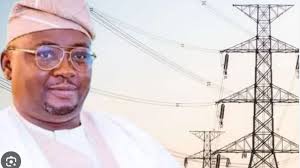
Presidency ready to settle N2tn power debt
The Presidency has launched internal approval processes to resolve the N2tn legacy debt owing to energy producing companies before the end of the approaching quarter, as part of steps to stabilise Nigeria’s power industry.
A representative of the Special Adviser to the President on Energy, Eriye Onagoruwa, announced this on Monday at the second Nigerian Electricity Supply Industry Stakeholders Meeting of 2025, held by the Nigerian Electricity Regulatory Commission.
According to Onagoruwa, the Presidency understands how urgent it is to remove the debt overhang, which has put pressure on GenCos and hindered the country's ability to produce power. She disclosed that because of the Federal Government's present financial limitations, other debt instruments are being investigated.
"We understand the challenges that GenCos are facing," she stated. "I can attest that the Coordinating Minister of the Economy and the Debt Management Office are on board with our endeavor to investigate alternative debt instruments. Internal approvals are being processed at the moment.
While she did not specify a definitive schedule, Onagoruwa expressed hope that a clear update will be given before the next quarterly NESI Stakeholders Meeting, suggesting progress could be disclosed within the next three months.
"I expect to be able to offer a clear update by the next NESI meeting," she stated.
The Federal Government had received a warning from Gencos regarding the ongoing accumulation of debt, which now stands at over N4 trillion.
Recently, the Senate Committee on Power expressed alarm over the power industry's liquidity issue, stating that the tariff shortages in the sector showed that the government owes about N200bn to electricity-generating companies every month.
The committee revealed that the government has not paid the power producers since this year, increasing the debt to roughly N800 billion.
In order to address enduring obstacles and set the stage for future sector reforms, the summit brought together operators, regulators, and other important players in the electrical value chain.
The establishment of the Nigerian Independent System Operator, the projected Meter Asset Fund, the Presidential Metering Initiative, and the growing metering gap were among the main topics of discussion. There was also discussion of the role of recently established State Electricity Regulatory Commissions and the shift to a multi-tiered electricity market.
John Akinnawo, the interim managing director of Nigerian Bulk Electricity Trading Plc, issued a warning about the possibility of market fragmentation in the wake of decentralization initiatives brought on by the Electricity Act 2023. He asked NISO to take the lead in establishing policy and operational uniformity.
Abdu Mohammed Bello, the managing director of NISO, gave a thorough briefing on the organization's goals, objectives, and essential operations. He emphasized how it contributes to increased operational stability, system coordination, and transparency in the changing electrical market.
The Presidency's intervention on the GenCo debt was welcomed by the meeting's stakeholders, who also expressed hope that the combined changes would assist reposition Nigeria's energy supply sector for long-term sustainability.
Now that sector-wide changes are underway and clarity is promised in the upcoming quarter, everyone is watching to see what the Presidency will do to address the long-standing financial obligations.





